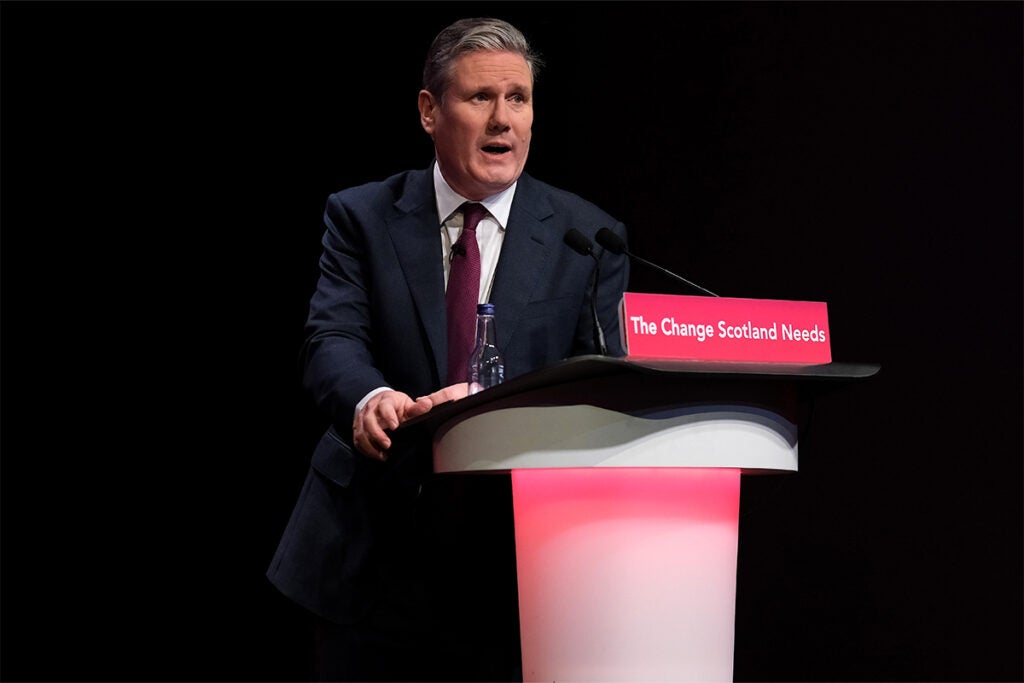
Telecoms entrepreneur Bassim Haidar. Tech innovator Johnny Boufarhat. Norwegian shipping heir Trond Mohn. These are just three of the thousands of overseas-born multimillionaires who chose London as their home because it was the best place for them to do business and to raise their families. Not any more. They – and many others – are now leaving the UK capital as it becomes less welcoming to the very rich.
[See also: Where have all the UK billionaires gone?]
London used to be a golden gateway to the globalised business world for the footloose ultra-rich, but it is losing its lustre. The 2024 Sunday Times Rich List records the largest fall in the UK’s billionaire count in the guide’s 36-year history, from a peak of 177 in 2022 to 165 this year. Britain is also likely to lose nearly one in six of its US dollar millionaires by 2028, according to the UBS Global Wealth Report for 2024, published in June.
‘We’re witnessing a great global movement of private wealth out of London to new wealth hubs,’ says Andrew Amoils, head of research at New World Wealth, a consultancy that tracks the movements of the world’s wealthiest 1 per cent.
[See also: G.P. Hinduja tops Sunday Times Rich List as billionaire numbers fall]
All change

The cause of the exodus is politics. After decades during which successive governments from Tony Blair’s Labour to Boris Johnson’s Conservatives rolled out the red carpet for foreign-born financiers and business leaders, notably by reducing taxes, Sir Keir Starmer is changing tack. Taxes are going up, which Starmer argues will raise funds for stretched public services.
[See also: New regime, new taxes?]
Take the non-domiciled, or ‘non-dom’ rules. The 225-year-old system, which has enabled some people living in Britain not to pay UK tax on their overseas earnings in return for an annual up-front payment of up to £60,000, is being scrapped. The key change is bringing a person’s worldwide assets into the scope of inheritance tax after they have spent 10 years in the UK. Those assets will also stay in the taxman’s sights for 10 years after a person leaves the UK. The prospect of HM Revenue & Customs biting off 40 per cent of a deceased tycoon’s empire is too much for most.
[See also: More non-dom millioniares call UK home – but for how long?]
Also troubling London’s rainmakers are Labour’s plans to crack down on carried interest – the way private equity dealmakers make most of their money. Carried interest is currently taxed at 28 per cent, rather than at the higher rate of income tax (45 per cent), but that might change. Then there is the dwindling appeal of the London Stock Exchange. New York, with its lighter regulation and higher company valuations, has become a more attractive destination for a flotation.
[See also: Cash and carry: is this the end of carried interest?]
Non-financial factors are also driving the super-rich to the first-class lounges of Heathrow, family in tow. The Tier 1 visa, which enabled wealthy foreigners to obtain residence in return for investment, has been scrapped. Brexit is an inconvenience for much-travelled executives. The rise in street crime, notably the theft of high-end cars and expensive watches, has left many feeling London is not safe. The fact that English law entitles a spouse to around half of family assets is another turn-off for many. ‘It’s a perfect storm,’ complains one Johannesburg-born hedge fund manager who’s quitting London for Zurich.
Migrating geese
Where are Britain’s monied refugees heading off to? They’ve never had so much choice, says David Lesperance, managing director of tax adviser Lesperance & Associates, who helps ‘golden geese to fly’ to pastures new. Rival countries are rolling out new gilt-edged schemes to tempt them.
Italy, Greece and Portugal all offer residency in return for an annual payment to the treasury – €200,000 in Italy and €100,000 in Greece – or local investments – after which new arrivals pay no tax. Switzerland also has a ‘lump sum’ scheme, which varies from canton to canton.
[See also: Where are the new non-dom hubs? Advisers reveal leading destinations after Labour win]
Italy, Greece, Portugal and Switzerland are particularly attractive because they not only offer a high standard of living but also have double taxation treaties with the UK, which make it possible to work in Britain for more than 100 days a year without becoming liable for UK tax. Analysts at Henley & Partners, advisers on international residency and citizenship, estimate Italy will see a net inflow of 2,200 millionaires and billionaires this year, Switzerland 1,500, Greece 1,200, and Portugal 800.
What about other European destinations? France is becoming less popular due to political uncertainty. Monaco does not offer a double tax treaty with the UK. Spain’s tax regime is considered by many to be too ‘punitive’. Malta’s citizenship by investment scheme is being challenged by Brussels. Some EU politicians argue that ‘passports for sale’ schemes are being abused by criminals. A cash-for-passports programme in Cyprus was scrapped after it emerged that applicants were not being screened properly: Jho Low, the Malaysian businessman embroiled in the multi-billion-dollar 1MDB corruption scandal, somehow qualified for Cypriot citizenship.
[See also: The best global mobility, residence and citizenship by investment advisers in 2024]
Further afield, Dubai is popular, although it does not offer the broad quality of life available in Europe – and the summer is brutal, with daytime temperatures above 40°C from June to October. Singapore offers low taxes but suffers from rising tensions between locals and expats, which surged during the Covid lockdowns. Many expatriates, who bristled at the draconian stay-at-home measures and sought to bend the rules, suffered abuse, often online, from locals. Beijing’s crackdown on political freedoms in Hong Kong makes the territory unattractive to many expats. The US’s global taxation rules make it a tricky choice – as does the prospect of political turmoil after November’s presidential election, gun violence, racial divisions, and the culture wars, notably in elite universities to which most super-rich aspire to send their children. Australia and New Zealand are too far for many who want to retain ties with London.
Millionaire motion sickness
Wherever they opt to relocate, moving has never been easier, thanks to the raft of new firms that have been set up to help the ultra-rich to ‘manage geopolitical risk’. Henley & Partners helps applicants to secure residence and/or citizenship rights through investment migration programmes in Dubai, Austria and, for now, Malta – as well as a number of nations in the Caribbean whose passports offer visa-free travel in the Schengen area. Juerg Steffen, the firm’s CEO, says: ‘The number of applications set an all-time record last year and we’re already more than 40 per cent up on that figure this year. We’re hiring, hiring, hiring and opening new offices.’
To many people, the ebb and flow of millionaires and billionaires from city to city might seem irrelevant. But Amoils says the benefits of migration of wealth and talent are significant and wide-ranging. ‘Migrating millionaires are a vital source of forex revenue as they bring their money with them when they move to a new country. Around 20 per cent of them are entrepreneurs and company founders who are likely to start new businesses and create local jobs in their new home. This percentage rises to over 60 per cent for centimillionaires and billionaires.’
Losing the super-rich can also reduce a government’s tax take. The top 1 per cent of UK earners pay almost 30 per cent of all income tax. The City’s financial and professional services industries, which are headquartered in London but employ two-thirds of their staff in towns and cities around the country, pay more corporation tax than any other. They accounted for 12.3 per cent of the total tax take last year, according to PwC.
One of the remarkable elements of the great ultra-rich migration is the shift in attitudes to wealth and nationality that it reveals. Citizenship used to mean a connection with a country and its people that cannot – should not – be bought and sold, while those who shopped around for the lowest-tax states in which to live were considered unpatriotic, or even tacky. Lesperance says there has been a cultural change: ‘My clients say, “I don’t want to pay zero tax.” They know a nation needs welfare, social security, infrastructure, defence. But they are considering, “What amount of tax do I consider fair?" Everybody has their own number.'
More and more are doing the sums and spinning the globe.







